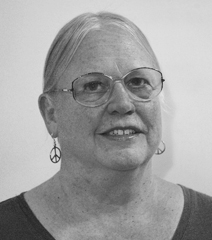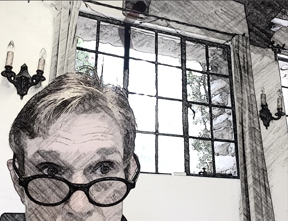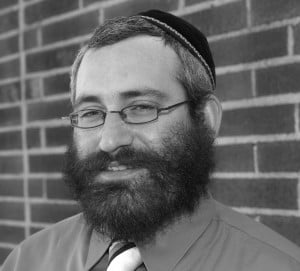QUESTION: Would you please say something about prejudice? We volunteered for a church mission to India and our hearts were saddened by the conditions families and children are living in. We adopted two children, ages 2 and 5 (both boys), with their parents’ consent (and challenges with Indian law) on the condition we would stay in touch and always let the children know who their biological parents are. Our plans are to visit often as well. Also, they could return to India after their education if they want to.
We’re white and the children obviously have dark skin. We’ve experienced negative comments time after time when we’re in restaurants and in public. We’ve explained to the boys that there are those individuals who are always going to be this way and that most people are not prejudiced.
Two questions: We’d like to know what to tell our children to “immunize” them against such remarks and, when this happens in public, what should we do or say in the moment? Also, we have an 8-year-old daughter who loves her little brothers.
~ Loving Adoptive Parents
Dear Loving Adopted Parents,
I just got back from Berkeley where my biracial granddaughter graduated. The diversity at that school and in that city is so exciting and rich that I find the prejudice you talk about even more unsettling. That experience leads me to believe that this prejudice comes from not having any experience with people who are different and the fear of the unknown. You might want to explain this to your children, too. What they say to you isn’t personal but simply ignorant and fear-based.
As far as what you can say to those with inappropriate comments, tell them that these are your children and that their comments are rude. Keep it simple and don’t engage. And again, don’t take it personally. The great Don Miguel Ruiz, author of “The Four Agreements,” said, “Never take anything personally. Nothing others do is because of you.”
Another comment that I want to make on prejudice is that the political times that we are currently living in have made it okay to say and do things that in the past we had the good manners to keep to ourselves. All of us, not just you as parents, need to remind people that it is not okay to make racial slurs. I know it’s hard but we all need to do our part in making our community comfortable for all people of different races and circumstances.
Carolyn Young, LCSW
cjymesalila@gmail.com
Dear Loving Adoptive Parents,
Let me first praise you for your decision to adopt children and give them a loving home. You saw a need and decided to take action. You are following what Jesus calls us to do: love with all our heart and strength. Which reminds me of Dr. Martin Luther King Jr.’s book called “Strength to Love.” I find his words still so relevant for facing prejudice and racism today. The Beloved Community Dr. King envisioned has not been realized; we experience prejudice in many forms today. So part of my answer to you is to name the prejudice when you hear it, name it for your children, and then follow up with a statement of your own, something like, “you are God’s beloved child and the words of this person says more about them than it does about you.”
Dr. King and those who worked with him trained many volunteers in non-violent resistance of the prejudice the marchers would encounter. He always taught that prejudice was a sin, but we are to love the sinner just the same. So you may want to look into non-violent resistance training and resources to help face those times when you experience prejudice. You may want to read more about the civil rights movement and how Gandhi had an impact on Dr. King. This would help connect your children with the non-violent moment in India.
I have a special needs daughter who experienced prejudice of another sort while growing up. The pain that she experienced as a result of prejudice tugs on my heartstrings, but she has grown into a wonderful young adult because of those who have been her advocates all her life long. The church family has welcomed her, those in the special needs community have fueled her strength and now as a young adult she is resilient. In short, love overcomes hate and evil every time.
I don’t have a prescription that will completely immunize your children, but by surrounding them with love, by acknowledging the hurt, and by helping them learn how to face life with all it’s challenges, this is what we can do to help them be healthy.
I pray you will experience more joy than hurt, wisdom to make decisions, and for our world to heal from prejudice in all its forms.
Rev. Steve Marshall
planetarypilgrim@gmail.com
QUESTION: Because we both have very busy schedules and after haggling over dates, times and where to dine, a good friend and I finally were having dinner in a local restaurant. Our food had just arrived and his cellphone rang. He said he had to answer it, went outdoors for at least 10 minutes while his food got cold and I dined alone.
When I’m with others, I either turn off my phone or let the message go to voice mail. To me, this was rude and, although I was cordial when he returned, I was angry. I wish someone would publish rules for cellphone etiquette. I seriously doubt I’ll dine with this individual in the future.
~ Lone Diner
Dear Lone Diner,
I don’t blame you for being angry. There are several lists of rules of
cellphone usage and the ones I checked online all had some form of “turn
it off when dining.” It is all too common to see this type of behavior
with our modern over-scheduled, activity-packed life style. I hope your friend apologized for leaving you at the table. If he expected a critical personal or business call he should have mentioned it at the beginning of the meal or even during your negotiated planning.
We are hypnotized by our electronic devices – hand held, dashboard mounted or desktop. Recent studies speak of dopamine rewards from Facebook likes. Who doesn’t want to be liked? Liking and sharing others’ posts makes you feel good too. Perhaps it’s a generational thing but I prefer the beneficial feelings generated by face-to-face contact.
Since you wrote in, I’m assuming you really don’t want to drop this friendship. Good friends should be able to be frank with each other. If it seems appropriate, you might mention to your friend that you enjoyed seeing him and hope next time he can arrange for an uninterrupted time slot. Another possibility would be to bring one or more people along with the expectation of interaction in person. Possibly this friendship will have to take a break for a while until you both have the time to pursue it.

Sharon Weisman
sharon@jetcafe.org
Dear Lone Diner,
The First Century Jewish sage Hillel the Elder famously stated, “That which is hateful to you, do not do to your fellow. That is the whole Bible; the rest is but commentary.”
The “Golden Rule” is found in some form or another amongst all religions and for good reason. It is only human to get annoyed and bothered by people’s actions. However, it is incumbent upon us to be equally sensitive to what upsets others as well. This is basic human decency without which we end up with a very dysfunctional society.
I find that, in the digital era, there is an addiction of sorts to emails, text messages and phone calls. It seems that more and more people are ignoring some of the basic rules of decency and instead gravitate towards the need to always “be on” and answer any incoming message within seconds.
This is sad, un-necessary and has a negative effect on society as a whole.
My suggestion to you is to not ignore this blatant offense but to say something about it. It is possible that your dining partner did not even realize how unpleasant his actions were. Once you explain it to him perhaps he will avoid making the same mistake again. I know it is not easy to police another person, but he very well may be thankful that you pointed out this obvious indiscretion.
Most importantly is that all of us be cognizant of other people and make sure to turn off or ignore digital media when we communicate with others – whether it’s a spouse, child other family member or friend. It is the very least we can do to enhance the environment in which we live in.
Rabbi Simcha Backman
rabbi@chabadcenter.org



